Description
Author: Elizabeth Hankins
ISBN: 978-0981160603
Dimension: 5.5 x 8.5″
Number of Pages: 150
Synopsis: “The word for what we’ve studied these past few weeks, boys and girls, is genocide.” I watched Mr. Steinberg turn from the chalkboard to face our social studies class. He looked sort of strange, like he was sad or something. “And if you want to help end it…if you want peace and protection for all people…you have to get involved and do the thing that you can do.”
Javier Mendoza has learned a new word and he doesn’t like it. But as his fifth grade class explores the shocking history in countries ranging from Armenia to Sudan, Javier realizes that the past – and even the present – is telling him a story that he can’t ignore. Then he overhears a conversation that triggers a mysterious chain of events at his school. Now Javier is faced with the reality that no one is immune to the consequences of genocide. And perhaps everyone has a responsibility to help end it…even Javier himself.

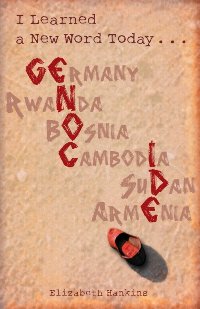
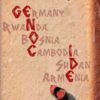
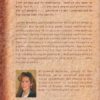
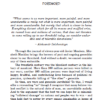
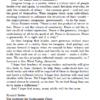
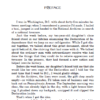
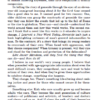
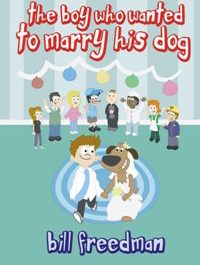
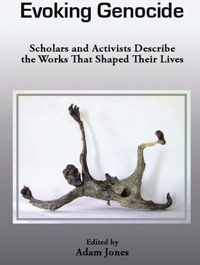
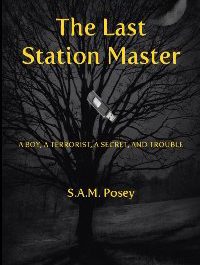

Adam Jones –
“This is a lovely and moving book. As someone who teaches genocide at a university level, I’ve often wondered how I would grapple with the challenge of conveying the subject to a younger audience – both the horror of the events, and the opportunities for intervention and positive social change. Elizabeth Hankins has accomplished that task superbly. Her humane and accessible tale will captivate not only younger readers, but many of their elders as well.”
-Adam Jones, Ph.D., author of Genocide: A Comprehensive Introduction
U.S. Congressman Trent Franks –
“Elizabeth has the ability to discuss some of the hardest issues facing humanity in a way that leaves the reader with hope rather than frustration about the evil in this world. Genocide continues to scar the lives of countless innocent people, and “the only thing necessary for evil to triumph is”, as Edmond Burke stated, “for good men to do nothing.” It has never been more critical for us to instill in the hearts and minds of our children a deep commitment to guard the sanctity of human life, and I believe Elizabeth’s vital work will help to do exactly that. She has written about the reality of genocide in a way children can understand, using her strong sense of conviction that we are our brother’s keeper and that each of us can use our voice to stand for truth and justice, and inspire future leaders to live for the noble cause of protecting the innocent.”
-U.S. Congressman Trent Franks, Arizona
Sam Bell –
“I Learned a New Word Today … Genocide is an example of the powerful way to educate our youth to become changemakers. The historical references to 20th century genocides, and the complex web of politics that surround the issue, are presented in a way that will help children understand that they too can play a role in the prevention of genocide and mass atrocities.”
-Sam Bell, executive director of Genocide Intervention Network
D. Michael Lindsay –
“Principled without being preachy and serious but not too solemn, this book is exactly what young people need to read to understand one of the darkest parts of human history. The good news is that we can prevent genocide from happening, but it requires a sober understanding of what has taken place and a call to action so that history does not repeat itself. With this book, Elizabeth Hankins gives a gift to everyone who knows and loves a young person. Buy it and pass the gift on to another. You and they will be richer for it!”
-D. Michael Lindsay, Ph.D., author of Faith in the Halls of Power
Emily Cunningham & Greg Kuo –
“I Learned a New Word Today … Genocide capitalizes upon the unique opportunity to breed a generation of political will and conscience through education. Children who learn about the atrocities of the twentieth century today will evolve into the constituency that continues to stand up against human rights abuses in Darfur, Burma, and Congo, now and in the future. Hankins demonstrates to her young readers that with time and dedication, their collective outcry will move the international community to action.”
-Emily Cunningham, Massachusetts state coordinator, and Greg Kuo, director of Teach Against Genocide
Cory Smith –
“I Learned a New Word Today … Genocide is a powerful book that will educate children about genocide, teaching them indelible lessons about defending the powerless and protecting life. This essential book will shape young lives and install a lifelong commitment to end genocide and mass atrocities once and for all!”
-Cory Smith, human rights attorney and faith outreach advisor
Peter Swann –
“For years now, I’ve lived with and moved among victims of genocide. For many of us, genocide is a foreign term with generic statistics, too overwhelming and distant to process. In reality, genocide is intensely personal – it’s faces, it’s names, it is our brothers and sisters. I Learned a New Word Today…Genocide personalizes genocide for all of us. It is skillfully crafted, a captivating read for the reader of any age. Yet even more, it compels one to action. I treasure this book and wholeheartedly endorse it. May we all be powerfully moved.”
-Peter Swann, executive director of Aid Sudan
Faith J. H. McDonnell –
“Out of a heart of compassion for the world, author Elizabeth Hankins has a birthed I Learned a New Word Today…Genocide. And out of a faith in the compassion of young people the world over, and a faith in their desire to do justice and love mercy, she has given the responsibility of telling this story of the sobering reality of genocide to a fifth grader, Javier Mendoza. I urge you to read Hankins’ book, and, with hope and love, to give it to the young people you know who will be the world-changers we so desperately need.”
-Faith J. H. McDonnell, director, Religious Liberty Program and Church Alliance for a New Sudan, The Institute on Religion and Democracy, Washington, DC; author of Girl Soldier: A Story of Hope for Northern Uganda’s Children.
Amazon Review by Gaby Chapman –
“The reason I am able to write these words, the reason that any of us are here and not long extinct is because of the Golden Rule: Do Unto Others As You Would Have Them Do Unto You. It keeps our worst intentions toward each other, which as a species we seem to have an abundance of, in check. But how far does the Golden Rule reach? To those in our house? Our neighborhood? Our country? Or does it extend to every human being on the planet?
Author Elizabeth Hankins chooses the latter answer in her book I Learned a New Word Today: Genocide that she has written for middle school kids. She has chosen to write this book for kids for two reasons as I see it: one, she believes children are naturally compassionate and can be enlisted in an effort to end some of the worst acts of inhumanity occurring in the world today; and two, she believes that these acts of inhumanity only occur because they occur in distant places and people can choose not to think about them. In this book, she brings those distant places into the schoolroom, the place where kids learn the essentials of what they need to know about their world.
Hankins has chosen to write this in the voice of a fifth-grade boy who is learning about genocide in his classroom from two teachers who have had personal experience with genocide. The conflict lies in the boy’s struggles to handle the information he is getting; the resolution lies in his realization that he can do something about it. While this may not be a book that kids will choose to read, it is a book that could be effective In the classroom as a teaching aid. For anyone, child or adult, it is an excellent summary of the history of genocide, the legal definition of genocide, and the ways people can help stop it.”
-Amazon Review by Gaby Chapman
Flamingnet Book Reviews –
“Through any eyes, genocide is an awful crime, but through the eyes of Javier Mendoza, genocide is unbearable. When a genocide curriculum is introduced to Javier’s fifth grade class, Javier begins to see just exactly how genocide affects the human race. From an upset parent to a genocide victim, Javier is inspired to help stop genocide. This very informative book covers different genocides from the last century and explores the roots of genocide. Any reader wishing to broaden their scope of global understanding and human suffering would do well to pick this book and give it a read.
In the style of a journal, the horrors of genocide are explained in simple, easy to understand words. I liked that this book gave a straight-forward approach to what genocide is, what causes it, and why it is awful. While maybe not a “for fun” read because of the content, I think this book would be excellent for any teacher teaching a curriculum on genocide. I think the most interesting section of this book is a conversation with a character known as Maker’s dad and Javier. In this, I gained a new insight on genocide as Maker’s dad reveals how he personally was affected by genocide. This book was definitely an eye-opener.”
NOTE to parents: Adult guidance is recommended because the descriptions of genocide can become semi-graphic.
-Flamingnet Book Reviews (Reviewed by a young adult student reviewer)
Amazon Review by Joel Vestal –
“Any parent, worker with children, or individual who wants a great resource about genocide MUST get this book. Hankins writes with experience and insight, not only as a mother, but as one who is well informed and educated on global issues.”
-Amazon Review by Joel Vestal
Amazon Review by Shannon M. Mcgee –
“A young boy, Javier, writes in his journal about what he is learning about in school … genocide. He learns it is a horrible thing and he wants to do something to stop it from happening.
The author, Elizabeth Hankins, takes a chance on writing a book about genocide for children. I knew a little about genocide like the Holocaust, but not much about the more recent genocides. I was afraid when I opened the book that it would go into great in detail about the killings and would end up gory. But it is mostly a book with facts, history and others’ thoughts on what age is the right age to start talking about such horrible things.”
-Amazon Review by Shannon M. Mcgee